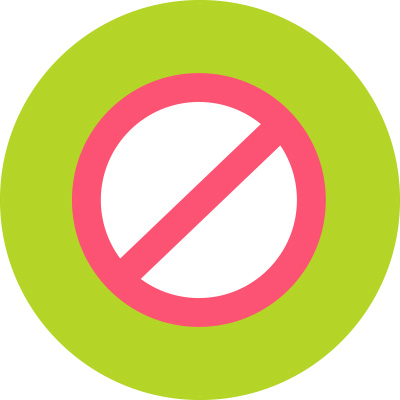
In the 2024 supervisory agenda, the Gaming Authority (Ksa) indicated that there would be an extra focus on duty of care. The Ksa wants to achieve this by protecting players to become problematic gamblers. A definition of duty of care in the context of gambling can therefore also be: 'Protecting players from problematic gambling.' On 18 July 2024, the news even came out that the Ksa is going to set up an Online Duty of Care department .
When this news item was published, Chairman of the Board Michel Groothuizen stated the following:
“In our annual plan and the 2024 Supervisory Agenda, we have stated very clearly that compliance with the duty of care is an important and urgent priority.
In order to empower this in the right way, we need to significantly increase our capacity. With this department, we are strengthening our supervision of the duty of care and are focusing even more on our mission 'safe gambling'."
Enough reason for Centrum voor Verantwoord Gokken (CvVG) to delve deeper into the matter. In this article we will discuss the duty of care at Dutch online casinos. This article is a 'follow up' of our article about illegal online casinos and the lack of duty of care at these parties. Because we want to express the contrast here, we will briefly describe a number of findings below regarding (the lack of) duty of care at illegal online casinos.
In short: the lack of duty of care at illegal online casinos
In our article on illegal online casinos, we described a number of practices that can contribute to problematic gambling behavior. Below we briefly discuss a number of them:

Inadequate or the absence of deposit limits and self-exclusion:
Illegal online casinos do not offer reliable protection for players in various areas, such as deposit limits and self-exclusion. Unlike regulated casinos that use the Central Register for Exclusion from Gambling (Cruks), a self-exclusion system, such options are often absent or easy to change at illegal providers. This increases the risk of gambling addiction, because players can easily start gambling again, even after a temporary break.

Delayed or Missing Payments:
Another problem with illegal casinos is the delay or absence of payouts. After players create an account and make deposits, payouts are often delayed due to additional requirements such as identity verification. This process can take a long time, causing players to become frustrated and wager their winnings, leading to further losses.

Absent addiction prevention policy:
Illegal online casinos do not have effective addiction prevention policies. Regulated operators are required to take preventive measures, such as offering help and trained employees to recognize gambling addiction. Illegal casinos ignore these issues and often offer minimal or no support for players with gambling problems.

Aggressive marketing (targeting vulnerable players):
The marketing practices of illegal casinos are aggressive and often target at-risk gamblers. Without legal restrictions, gamblers are easily persuaded by promotions and advertisements, often via illegal affiliate websites, that target vulnerable consumers, including players who try to stop gambling via Cruks.
It can be argued that there is not only a lack of duty of care at illegal casinos, but that they are even working directly against the regulations of duty of care. With the simple motive of financial gain.
In the Netherlands, this is not the case. Let us delve further into this and start with a logical starting point: the permit application.
The remote gambling license application as the starting point of the duty of care
If a gambling company wants a license for the Dutch market, an account must be created on the Koaportaal . The Ksa has insight into the portal and therefore also handles the license applications. Under module F, the Ksa asks for the submission of addiction prevention policy:

The applicant must therefore submit a policy document that precisely reflects how the duty of care will be dealt with in the future, in line with the legal requirements. This policy document addresses various topics:







The policy document is thoroughly checked by the Ksa. It is also examined to what extent actual implementation is also possible with the applicant. The 'pie in the sky' content should therefore not be too high.
Although the Koaportaal has a specific section on addiction prevention, safeguards are set up in the permit application for several components. For example, the reliability of an applicant organisation is thoroughly examined. The Ksa wants to be certain that it is dealing with a reliable, stable organisation.
Addiction prevention courses
Articles 8 and 9 of the Regulation on recruitment, advertising and addiction prevention of gambling deal with the basic addiction prevention course and the additional addiction prevention course. The basic course is offered to the following employees, among others:

Managers and employees in key positions

Employees responsible for supervising players

Employees involved in the implementation of the addiction prevention policy

Employees responsible for admitting players (registration process)
The basic course covers various topics. Think of the elements of the games of chance offered that have a certain sensitivity to addiction, signals of risky and problematic gambling behavior, interventions that are appropriate for these signals, measures that can be offered by self-help and/or addiction care, explanation of conversation and also explanation of legislation and regulations in this context.
The additional course is usually offered to the following employees:

Managers and employees in key positions

Employees responsible for supervising players

Employees involved in the implementation of the addiction prevention policy


The scope of the additional course is more extensive. Among other things, the following topics are covered:
- Introduction to communication and conversation skills;
- Practicing basic conversation skills;
- Conversation techniques for limiting gambling behavior, with a focus on young adults;
- In-depth knowledge of recognizing risky gambling behavior;
- Insight into appropriate interventions for signals of problematic gambling behavior;
- Practice offering appropriate interventions;
- Learn when referral to addiction care is appropriate and how to do so;
- More information about anonymous help or self-help tools.
The mandatory courses ( see also the Ksa explanation page about this ), which also apply to land-based providers, are an essential part of the regulated Dutch market. It is of great importance that employees have the right knowledge of the risk to become addicted and how to deal with it. The right knowledge contributes to realizing the duty of care.

Ongoing support for players in the area of addiction prevention
As stated above, employees of licensed Dutch gambling providers are actively trained in communicating with risk and problematic gamblers. Legal providers ensure the availability of skilled employees who have completed the appropriate courses. Is proactive or continued contact with a player required? In that case, personal support and advice can be counted on. Help can be advised in various forms. Self-help tools, Cruks connection and, for example, consulting professional help (their own GP, for example).

The legal providers are required to monitor the gaming behavior of all accounts, which makes it possible to identify any unusual issues. Based on monitoring, the appropriate risk profile is then taken into action. This is implemented via the previously discussed policy.
It will come as no surprise that online casinos in the Netherlands have to process a lot of personal data. Extra attention and care is required. After all, it is possible that gambling providers have to deal with health data, which are considered sensitive personal data under the General Data Protection Regulation (GDPR). Why? Information about a diagnosed gambling addiction or, for example, medication use falls under this category.
Information about addiction prevention
The Decree on recruitment, advertising and addiction prevention of gambling discusses in article 8, information that in any case must be shared with players. For example, information must be provided on the following subjects:






Furthermore, according to Article 8, paragraph 2, permit holders are obliged to provide access to:
- Websites of one or more online addiction care institutions, of one or more online anonymous help institutions, of one or more physical Dutch addiction care institutions and one or more physical Dutch anonymous help institutions for gambling addiction;
- a facility that allows the player to easily gain insight into their gaming behavior;
- a facility that allows the player to exclude themselves from participating in games of chance organised by the licence holder;
- a facility that allows the player to exclude themselves from participating in games of chance organised in gaming arcades, gaming casinos and remotely by registering;
- the website of the Dutch Gambling Authority.
Online casinos (and bookmakers of course) generally have to have easy-to-find information available on the website. The use of banners, references in the main menu and the footer about responsible gaming is also pointed out upon registration. The strict information sharing that applies to Dutch license holders means that this component also contributes strongly to the duty of care.
Compliance with legal requirements
It may not be on top of your mind. But keeping up with (rapidly) changing laws and regulations in the field of online gambling in the Netherlands is an essential part of operations for providers. Where illegal parties do not take into account the applicable rules most of the time, it is of great importance for legal providers to proactively keep up with the changes.

New legal (or policy) requirements are regularly published, especially with regard to the duty of care. For example, the Regulation on Gaming Limits will come into effect on the 1st of October, requiring mandatory interventions between (addiction prevention employees) of the providers and players who exceed a deposit limit. A limit of €350.00 applies to persons aged 24 and over, and a limit of €150.00 for persons aged 18 to 14. In addition to this regulation, part of the new Responsible Gaming Policy Rules will also come into effect, emphasising the need for action in the event of various signals. One of these signals is, for example, exceeding a total deposit of €700.00 in a month. In this case, it may be necessary to request salary information, for example.

Compliance with all legal requirements by licensees can therefore be considered an integral part of their duty of care. After all, by complying with the increasingly complex rules, such as the new Regulation on Gaming Limits and the Responsible Gaming Policy Rules, providers demonstrate that they actively contribute to protecting vulnerable players. It is not just a matter of complying with regulations, but also of ensuring a safe gaming environment. This proactive action based on a legal obligation, for example by contacting players who exceed limits or requesting additional information, strengthens the responsibility that providers stand strong for the well-being of their players. In short, compliance with the rules is not only a legal obligation, but also functions as an essential mechanism within the broader duty of care that providers have.

Special protection for young adults and vulnerable players
Young adults are given extra protection at Dutch legal online casinos. For example, young adults are excluded from bonus offers and marketing. The Decree on Untargeted Advertising of Remote Gambling (also called the Decree on Orka, as contained in article 2ab of the Decree on Recruitment) has suggested a percentage of 95%: At least 95% of the persons reached with permitted advertising must be 24 years of age or older.
In addition, online gambling providers are expected to describe methods in their addiction prevention policy to better protect young adults. For example, higher risk classes are often assigned to young adults. This means that a young adult can count on an intervention more quickly than a player aged 24 or older.

Duty of care in marketing
The Orka Decree therefore sets requirements for where and how often advertising is put into place. In addition, many other rules apply to recruitment and advertising. A policy document on recruitment and advertising activities must also be submitted to the Gaming Authority during the permit application. For example, advertising must contribute to channelling to the legal supply, which means that the 'recruiting discussion' of illegal supply is strictly prohibited. Advertising must also be carefully and balanced in design. For example, consumers may not be persuaded to make impulsive decisions. Creating a strong sense of urgency is not permitted. Deception must also be prevented. For example, the impression must never be given that learning the game and overall experience can lead to better results with gambling.
Ultimately, the marketing policy of an online casino should always be in line with the addiction prevention policy. The risk levels of the game should also be taken into account.
In conclusion: duty of care in keeping the offer attractive
Although there is a great responsibility on legal gambling providers to fulfil their duty of care, we must realise that this responsibility is not one-sided. The duty of care for the consumer also extends to politicians and legislators. It is essential that they guard against over-regulation, which can make the legal providers of games of change less attractive. If the rules become too strict or too restrictive, this can actually drive players towards illegal offers, where there is no protection or duty of care. This is particularly harmful to the consumer and undermines the objective of consumer protection. A balanced approach is therefore necessary: the legislator must ensure that the legal offer remains attractive, so that players remain within the safe framework of the regulated market, where their well-being is actually protected. Only by working together providers and politicians can create an environment in which responsible gaming is the norm and players are optimally protected against the dangers of gambling.
















